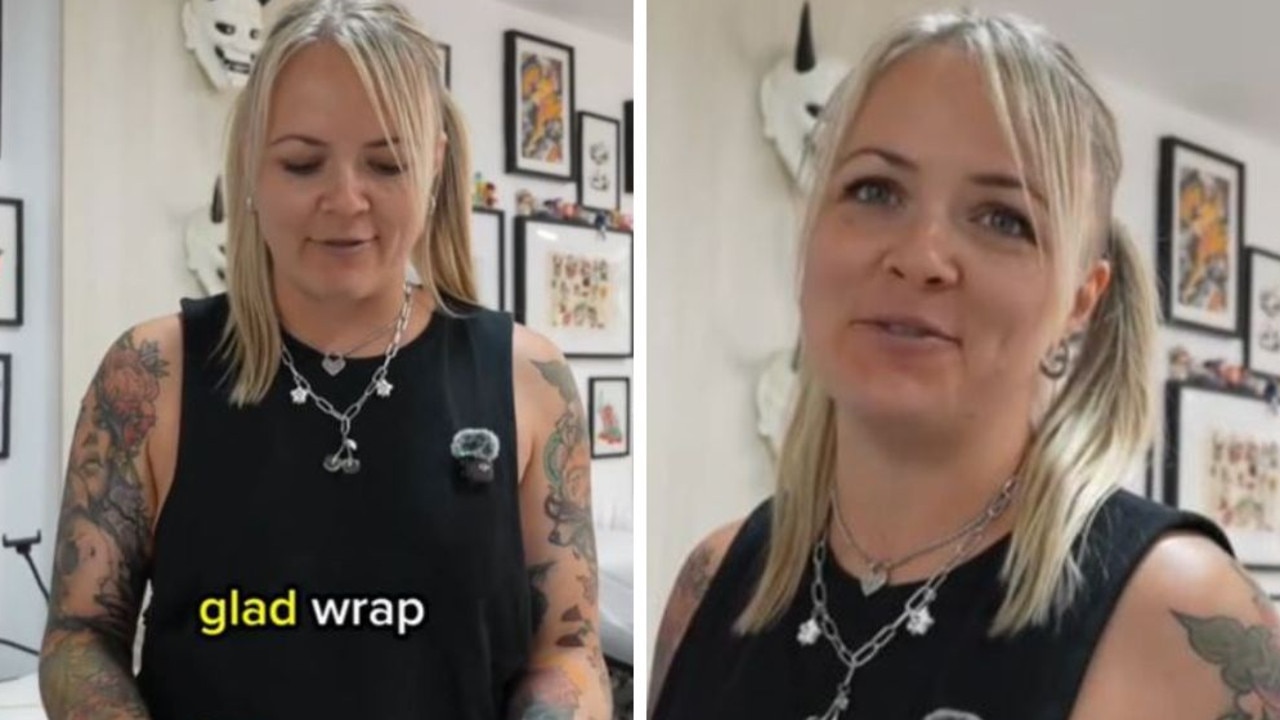Australian women share their experiences with sexism in the workplace
TARA owns her own business and frequently negotiates million-dollar deals. But she says men don’t take her seriously and it’s absolutely ridiculous.
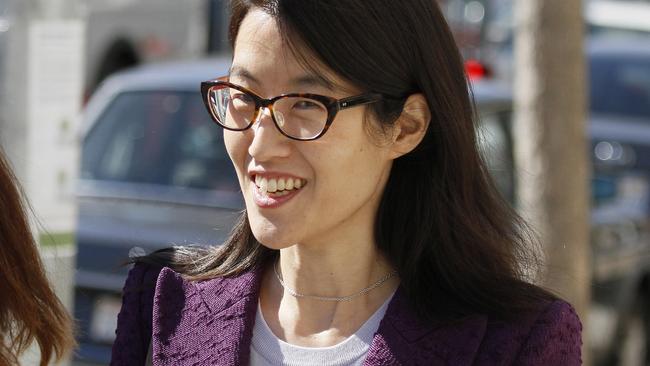
Real Life
Don't miss out on the headlines from Real Life. Followed categories will be added to My News.
SPEAK UP, but not too loudly. Look presentable, but don’t focus too much on your appearance. Be confident, but not cocky or too critical of others. This is the game women must play if they want to get ahead at work.
And it’s a game that Ellen Pao lost.
The interim Reddit CEO lost a huge civil case in the US. She sued her former employer, tech venture capital firm Kleiner Perkins Caufield & Byers, arguing she was overlooked for a promotion at the “boys club” company because of her gender. Pao lost the case — Kleiner argued she simply wasn’t good enough, wasn’t a team player and was disruptive at work.
But the case has rattled Silicon Valley and ignited a worldwide debate about the more subtle, entrenched forms of sexism in the workplace. Thousands of women are sharing their stories via the #ThankYouEllenPao hashtag, relieved that they’re not alone in their experiences. It might not be outright ass-grabbing, but this form of sexism can be just as damaging.
And it’s rampant in the Australian workforce as evidenced by the volume of responses we received to our callout. Here four women share their stories.
Share your personal story in the comments section below.
TARA-JAY RIMMER. 30. FROM QUEENSLAND
Owner of The Van That Can, a furniture delivery and removal company
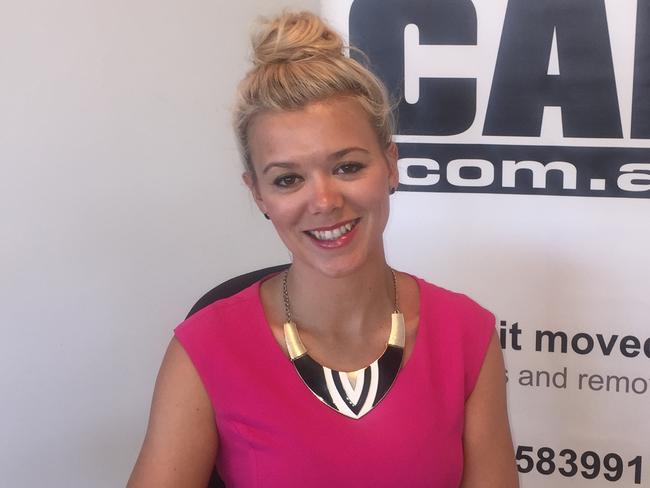
“I’d always heard about sexism in workplaces from other women, but I hadn’t personally experienced it myself until I started my own business three years ago. I just thought, ‘People are being too sensitive’. You never really think it’s going to happen to you.
I run a business with my husband — I do the finance side of things and he does the operations. I’ve been in business meetings negotiating multi-million dollar deals and people don’t even talk directly to me. They only address my husband.
They’ll ask him the finance questions, not make eye contact with me and basically ignore my presence. He has to forward on the questions to me and I answer them. It’s this weird triangle. They completely dismiss me in the first meeting and by the second meeting after we’ve had more contact, they might take me more seriously.
At networking events when people find out what I do, they’re like, ‘OH REALLY?’ They don’t believe I could own my own business. They assume I could only work in one of the lower positions in the company.
Even the types of questions I get asked ... nonsense things like, ‘How do you spend your day? What do you do all day? They have this image of me as the housewife, staying at home while my husband runs the business. Nobody ever asks him what he does with his day. But people always ask me. I’m living the dream, apparently. I find it quite patronising.”
HOLLY UNDERWOOD* 23. FROM SYDNEY
Manager at Big W
I work in a very male based environment. Within the store about 85 per cent of the employees are male. A lot of the women who work there are in administrative roles or they work in apparel.
I get sexist comments from customers a lot. Even though I’m a manager often they’ll demand to speak to a male manager. Or they’ll express shock when they find out I’m a manager. From other co-workers it’s more subtle.
I’ve found that if it’s a male manager under 30 they’re way less sexist than the older male managers. I have worked with some fantastic male managers who do see me as their equal, but that’s because they’ve given me a chance. I would say it’s the older male managers who have a problem when I say, ‘Hey I can actually do this’.
We had Julia Gillard come in for a book signing recently and my male colleague introduced me by way of saying, ‘This is my personal assistant’. He was trying to make a joke but it just didn’t stick. And he was speaking to one of the most powerful women in Australia, a former PM. It was ridiculous.
Even though I am more superior than some of the males in the workplace, this guy will call on my male colleagues before he calls me, even though I’m the manager on duty. All these little things add up to make me feel like I’m disadvantaged, just because I’m a woman.
I’m quite feminine. I like wearing a heel, I do my hair and makeup and I’m very bubbly and smiley, which I think can sometimes come across as ditzy. The female managers who have been promoted show more stereotypically male characteristics — they wear less makeup, they’re a bit more straight down the line. I definitely think for women, your appearance and how ‘feminine’ you are plays a part in how your bosses see you.”
KRISTEN BOSCHMA. 47. FROM MELBOURNE
Head of Social Media at Bastion Group
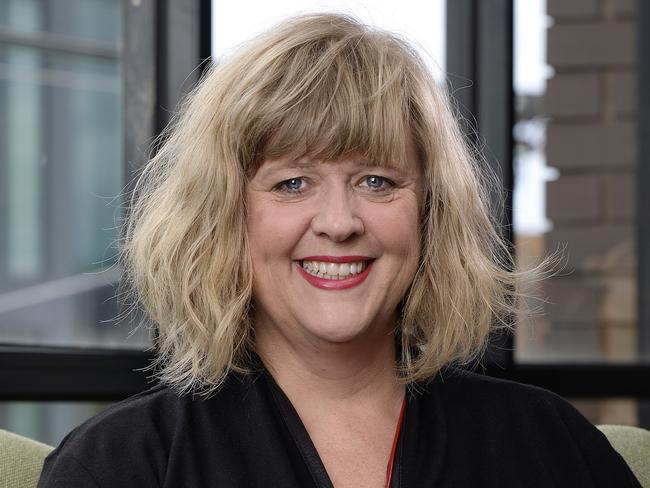
“I think Australian organisations are becoming more progressive. The company I work for now is great, but in other organisations there were numerous occasions where the interactions had sexist undertones.
In one instance I was in a meeting where a social media expert was required — and I was that expert. I was the only woman in the room and the client refused to listen to what I was saying. Everything I said had to be translated by my male colleague, even though he knew nothing about social media and none of the other people in the room knew about social media — which was why I was brought in to brief them.
I wasn’t speaking using highly technical language, I was talking to them about their business needs and how they can get a good return on their investment. Yet for some reason that information had to be translated to them by a male.
After the meeting my male colleague said to me, ‘What happened in there? That was ridiculous!’ This wasn’t me just being some sensitive female.
There was a distinct preference to hearing what was being said from a man, because when it came from a man it supposedly had some special stamp of authority and logic to it.
When it came from me, it was something they felt they could overlook or become confused about, even though I was the expert in the room.”
ALEXANDRA KING. 40. FROM SYDNEY
Works in an administrative role for a soccer club
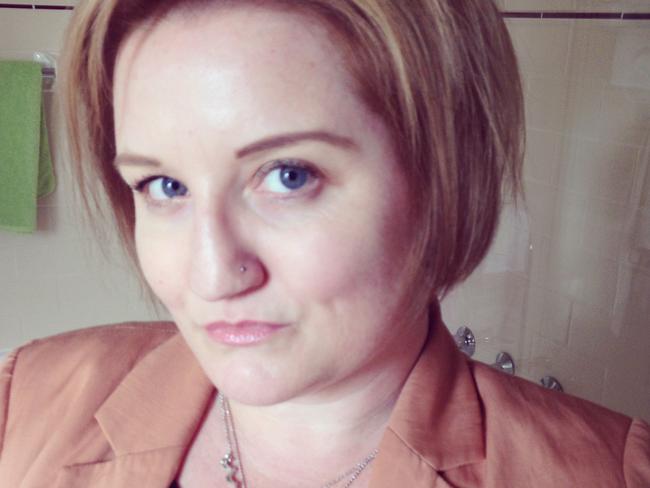
“About 15 years ago I held a fairly high management position running the IT department of a telecommunications company. IT is a misogynist industry.
Most women are in administrative roles. I was in a technical role where I physically built computers and I would cop so much criticism from people. I would have to work twice as hard to get paid what the men did.
After I had my daughter and returned to work, my bosses would assume that if she was sick I’d have to leave work, and others would have to pick up the slack. My daughter stayed with my parents when I was at work so that wasn’t an issue.
I said to these men, ‘OK, well what do you do when your child gets sick?’ and they replied, ‘Well, I just make my wife do it’.
A lot of men are still perpetuating this 1950s idea of women in the workplace. It’s really scary. I hear guys talk and I think, ‘Who teaches guys these things?’ It’s just ridiculous. IT is an industry where women are second class citizens.
I went for a job interview when I went back to work part time, and the bloke interviewing me said, ‘When are you going to pop the next one out?’ I was so insulted. I just laughed and told him it was none of his business and had nothing to do with my ability to work. I walked out of the interview because I knew I wouldn’t get the job.
When I went back to work full time all I was offered was contract work, nothing full time because people said, ‘Well, you might go off and have another baby’.
My friends are all having babies now and I think it’s crazy, that this is still happening 20 years after it happened to me.
Until you have men in power actually publicly advocating for women and making examples of other men who behave poorly, they are always going dismiss sexist behaviour with the ‘I was only joking’ excuse. They’ll continue to just be slapped on the wrist.”
*Name has been change upon request.
If you want to report sexism in your workplace, you can contact the Sex Discrimination Commission or the Fair Work Commission.
Have you experienced sexism in the workplace? Comment below or email us at rebecca.sullivan@news.com.au
Originally published as Australian women share their experiences with sexism in the workplace



